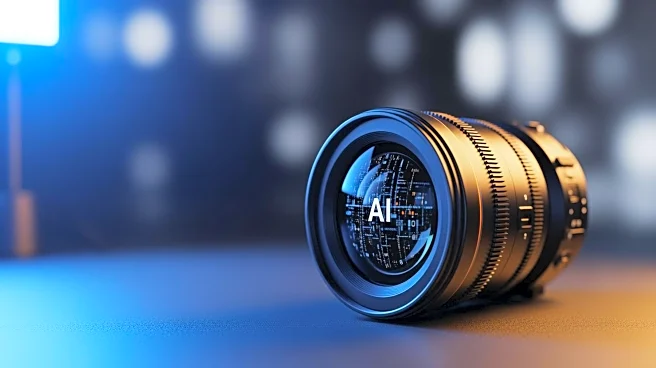What's Happening?
The development of AI image and video generation models has sparked controversy among artists and creators. Filmmaker PJ Accetturo faced significant backlash after using AI tools to create a fake trailer
for a live-action version of Hayao Miyazaki's animated classic, Princess Mononoke. Despite earning millions of views, Accetturo received insults and threats from fans who interpreted Miyazaki's previous remarks as a rejection of AI-generated video. The controversy highlights the tension between technological advancement and artistic integrity, as AI tools are accused of stealing work and potentially displacing jobs. However, these models have also improved workflows and opened new opportunities for artistic expression.
Why It's Important?
The controversy surrounding AI in video production underscores the broader ethical and economic implications of AI technology in creative industries. As AI tools become more sophisticated, they offer potential efficiencies and new forms of expression but also raise concerns about intellectual property rights and job security. The backlash from artists and fans reflects a growing resistance to AI's encroachment on traditional creative processes. This tension could influence industry standards and regulations, as stakeholders seek to balance innovation with ethical considerations. The situation also highlights the need for clear guidelines on AI usage to protect creators' rights and ensure fair compensation.
What's Next?
As AI technology continues to evolve, the creative industry may see increased pressure to establish ethical standards and protections for artists. Industry leaders and unions, such as SAG-AFTRA, may push for more robust regulations to safeguard against unauthorized AI replicas and ensure fair use of AI tools. The ongoing dialogue between creators, technology developers, and policymakers will be crucial in shaping the future of AI in the arts. Additionally, creators may need to adapt to new technologies and explore innovative ways to integrate AI into their work while maintaining artistic integrity.
Beyond the Headlines
The ethical debate over AI in creative industries extends beyond immediate concerns about job displacement and intellectual property. It raises fundamental questions about the nature of creativity and the role of human agency in artistic expression. As AI tools become more prevalent, they challenge traditional notions of authorship and originality, prompting a reevaluation of what constitutes art. This shift could lead to new forms of collaboration between humans and machines, redefining the boundaries of creativity and innovation.








